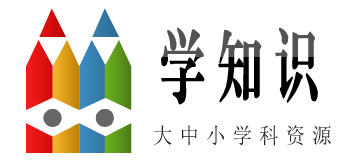词类篇-人称代词的用法
代词是用来代替名词且起名词作用的短语、分句和词。常见的代词有人称代词、指示代词、物主代词、反身代词、疑问代词、不定代词、相互代词等。
人称代词是指为了避免重复而用来代替前面所提到过的人事物的词。
This is my favorite book. I read it yesterday.
这是我最喜欢的书,我昨天阅读了。
(代词it代替名词book)
My mother likes traveling. She will go to Beijing next week。
我的妈妈喜欢旅行,下周她将去北京。
(代词she代替mother)
人称代词根据用法不同有人称、数和所有格变化,具体变化如下图所示:

1.人称代词的主格可以作为主语
She will go to ski tomorrow.
她明天会去滑雪。
单数人称代词并列作主语时
其顺序为:第二人称、第三人称、第一人称
复数人称代词并列作主语时
其顺序为:第一人称、第二人称、第三人称
You, she and I all admire Jay Chou.
你、我和她都喜欢周杰伦。
2.人称代词的宾格作宾语
We often go to play with him on Saturday.
我们经常在周日去和他玩
Both his parents and teachers are proud of him.
他的家长和老师都为他感到骄傲。
?考点链接
There is a girl with long curly hair, does anyone know ?
A.she B. he C. her D. him
答案及解析:
C. 首先“长卷发的女孩”,排除B和D。这里作宾语要用宾格形式“her”.
词类篇-指示代词的用法
指示代词:用来指示和标识人或事物的代词。
常见的指示代词有:
this(这个),that(那个),these(这些),those(那些)
1.指示代词作主语、宾语、表语和定语
That is what I want to say.
那就是我想要说的。
(that作主语)
I like these and he likes those.
我喜欢这些,他喜欢那些。
(these和those作宾语)
2.this、these一般用来指时间或空间上较劲的人或物,that、those常指时间或空间上较远的人或物
This is my mother and that is my sister。
这是我的妈妈, 那是我的姐姐。
3.为了避免与前面的名词重复,可以用that或those代替
The population in Guangzhou is larger than that in Wuhan.
广州的人口比武汉多。
(that指代前面的population)
This picture is more beautiful than that one.
这张图片比那张更漂亮。
(that指代前面的picture)
?考点链接
In terms of education systems, one cannot say that the system in one country is better than
A.that of another B. another
C.one of another D. one another
答案及解析:
A 在教育体制方面,不能说一个国家的体制比另一个国家的好。
say后面的话可以理解为…is better than the system of another (country),为了避免重复,用that指代system。

词类篇-物主代词的用法
物主代词:说明事物所属关系的代词,分为形容词性和名词性两种。

形容词性物主代词仅用作定语,修饰名词
I’m not sure whether she has understood to all my needs.
我不确定她是否理解了我的所有需求。
Her views are different from those of others.
她的观点与其他人不同。
名词性物主代词可作主语、表语和定语,“of+名词性物主代词”结构可用作定语,表示范围或归属
I have finished my part. Have you finished you task?
我已经完成了我的部分,你完成你的任务了吗?
Hong Kong is part of China.
香港是中国的一部分。
词类篇-反身代词的用法
反身代词:表示谓语的动作与主语有关或者宾语补足语的动作与宾语有关

用作宾语和表语,表示“…自己”
The foreigner has been teaching himself Chinese.
那个外国人一直在自学汉语。
用作名词、代词的同位语,加强语气,表示“亲自、本人”的意思
Why do I always have to do everything myself?
为什么我是得亲自做每一件事?
(myself加强语气,“我亲自”)
The story itself is good. Only he didn’t tell it well.
故事本身是好的,只是他没有讲好。
与反身代词常见的搭配:
devote oneself to…献身于
enjoy oneself玩得开心
help oneself to…自用,自取(食物等)
dress oneself打扮
make oneself at home不要客气
(all) by oneself 独自
be self怡然自得
?考点链接
Those girls enjoyed in the party last night.
A. them B. they C. themselves D. herself
答案及解析:
C.那些女孩昨晚在聚会上玩的很开心。
考察“enjoy oneself”固定搭配“玩得开心”,锁定CD,再考虑是“girls”,用复数形式themselves.
词类篇-疑问代词的用法
疑问代词:用来提出问题的代词

who在句中多用作主语、宾语和表语
Who told you the good news?
谁告诉你这个好消息的?
whom在句中用作介词或动词的宾语
Whom did you go to the cinema with yesterday?
昨天和你去看电影的人是谁?
Whose表示“谁的”,可用作定语、主语、表语和宾语
They all finished the task. Whose result is the best?
他们都完成的任务,谁的结果最好呢?
what和which都可以在句中作主语、宾语、表语和定语
What happened to him last year?
去年他遇到了什么事情?
Which do you prefer, the blue one or the black one?
你喜欢蓝色那个还是黑色那个?
What does your brother do?
你的哥哥是做什么的呢?
?考点链接
Excuse me, could you please tell me is the way to the post?
A. whose B. which C. how D. what
答案及解析:
B 不好意思打扰了,请问可以告诉我哪条路是通往邮局的吗?
whose谁的,what什么,how怎么样。首先这里是缺少主语,排除AC。what不符合句意,这里想表达“哪一条路”。










